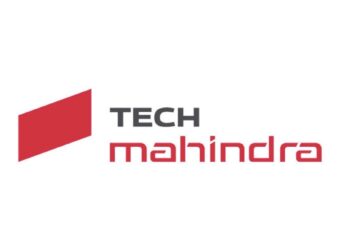With competition becoming nimbler and customers more demanding, insurance companies are accelerating their digital transformation initiatives. Legacy technology platforms and time-consuming manual paper-based processes are slowly becoming a thing of the past. Like every other business, the need of the hour for the new-age insurers is to strive harder to stay relevant and invest in intelligent automation.
To understand what intelligent automation is – it is a combination of robotic process automation (RPA) and artificial intelligence (AI). Insurers must think of intelligent automation not as a technology implementation but a lever to drive complete business transformation. With the availability of a wide range of options to transform businesses, the range of automation technologies may get overwhelming. Therefore, insurance pioneers must exercise their due diligence and streamline their front and back office operations across the insurance value chain.
Survival of the Fittest
Traditional legacy systems have hard-coded rules and business rules in conjunction with new business, claims settlements, underwriting, policy servicing, and other processes. All these not only make insurance companies less agile, but it leaves an adverse impact on customers as well. In view of this, legacy modernization investment is crucial in every insurer’s IT roadmap. With a proper plan in place and implementation of the right technologies, legacy systems can be modernized without affecting existing operations.
RPA – Bidding Adieu to Mundane and Repetitive Tasks
The administrative side of insurance processes involves humungous paperwork, exchange of files, and a host of other activities. Whereas, the need is to reduce the processing time and enhance overall productivity. This is where RPA comes to the rescue! RPA bots automate repeatable activities and allow users to perform constructive tasks. Insurers can leverage RPA across various processes in the insurance value chain, namely new business, underwriting, claims processing and policy servicing and offer various business benefits:
- With optimum work distribution, bots eliminate the scope of human errors. Further, there’s the ease of transition for employees to perform tasks efficiently
- Faster claims processing with RPA helps in plugging the missing gaps by integrating all claim information, notifying those for loss adjustment while accelerating the end-to-end process
- Increased reliability of data and reduction in errors
Deployment of AI in Insurance
Insurance executives must understand the importance of artificial intelligence (AI) and how it can reshape claims, underwriting, customer experience, and pricing. From faster, customized claims settlement to behavioral premium pricing AI can disrupt the insurance industry. Therefore, insurers must bank on this opportunity in this highly competitive industry and get a head start by working out an action plan that best suits their organization.
McKinsey estimates a potential annual value of up to $1.1 trillion if AI tech is fully applied to the Insurance industry.
AI has the potential to transform the insurance landscape by:
- Enabling increased access to data and insights to build a better and more accurate data foundation
- Optimizing services and provide the ‘next best action’ to customers, brokers, and third-parties based on preferences and past interactions
- Ensuring consistent employee performance by eliminating guesswork associated with decision making and enable faster, data-driven decisions
Re-engineer Insurance Processes with BPM
In the intelligent automation ecosystem, RPA and AI work in tandem, but the duo is incomplete without BPM, which drives enterprise-wide intelligent digital automation. BPM helps achieve agility, accuracy, and transparency in key insurance processes across life, health, and general insurance. It can enable any insurance organization to enhance its operational effectiveness continuously and provide a competitive advantage. BPM provides significant business benefits such as:
- Improved business agility by bringing transformational changes in an organization to adapt to changing business environment
- Accelerated revenue growth with digitalized and agile processes, enhancing transaction volumes leading to improved profitability
- Enhanced customer experience with faster and flexible responses to customer needs and queries
- Improved business agility to drive changing business environment
Conclusion
Insurers can gain numerous advantages with stand-alone implementations of BPM, AI, and RPA. However, they can certainly maximize the business benefits by leveraging synergies between these technologies and become an intelligent automated organization. Insurance carriers can drive profitability with reduced operational expenditures, productivity gains, business insights, exceptional customer service and gain competitive advantage and differentiation in a digital future.
Disclaimer: The author of this article is Virender Jeet, Views expressed in this article are his own.


















